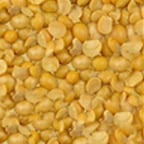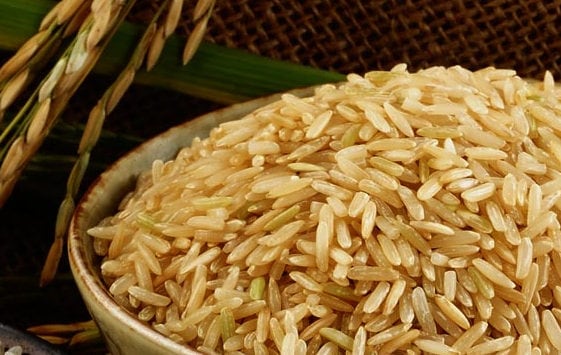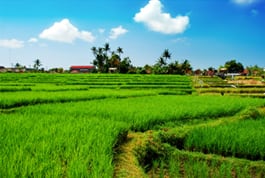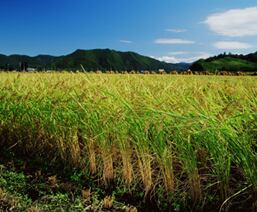But what’s the size of the prize, and can recent meteoric growth continue?
One of the leading players in the plant-based protein market is LA-based Axiom Foods, which has been notching up explosive growth for its Oryzatein branded rice protein and has just boosted production capacity for its water-extracted Veg-o-tein yellow pea protein powders from 20-25 containers a month to 55+.
Company sales rose to $45m in 2013, and could more than double to $90-100m in 2014 if current trends continue, CEO and founder David Janow told FoodNavigator-USA.
Sales on track to double from $45m in 2013 to more than $90m in 2014
Yellow pea protein is very hot right now thanks to its vegan, sustainable, credentials, said Janow. It also has excellent digestibility, high levels of the amino acids arginine and lysine, and works well in soups, snacks, ready to drink products, nutritional products, smoothies and other products.

However, no one plant protein will rule them all, adds Janow - who believes Axiom may now be the world’s biggest pea protein manufacturer (other big guns include Nutri Pea, Cosucra and Roquette) - although he expects he will soon be overtaken again as rivals expand.
“Hypo-allergenic, vegan and gluten free products all need protein and rice protein is the only one that fits the bill in all three categories. Some people have allergies to pea protein and hemp proteins.”
The price of pea protein is going up; the price of pea starch is going down
Another factor potentially limiting growth is that while pea protein might be red hot, another key component of the pea - starch - is not, and is being “dumped in China” to make things like vermicelli noodles, he claimed.
“The price of pea protein is going up, while the price of pea starch is going down.”
Not all pea protein is the same
Meanwhile, buyers should also look carefully at what’s on offer, said Janow, who explains that Axiom’s product is produced in Yantai, China, from north American yellow peas in a facility that Axiom does not wholly own, but has an exclusive relationship with.
“The key players [including Axiom] use a physical process [to extract protein], while some new players in China are using an enzymatic process that doesn’t deliver the same taste or functionality, but is cheaper.”
Rice protein sales are exploding

Axiom is best known, however, for its Oryzatein rice proteins, which are extracted enzymatically (no hexane) from whole grain brown rice (the bran, germ and the endosperm), in a proprietary low-heat process to prevent the protein from denaturing. They are also melamine-free, non-GMO, and Prop 65 compliant.
While rice has traditionally been seen as a poor cousin to whey by athletes, sports nutrition firms suddenly sat up and took notice last year after a study showed that despite its lower levels of lysine and leucine, Oryzatein was just as effective as whey protein isolate at aiding recovery after resistance exercise, noted Janow.
We are the only firm that actually manufactures and sells whole grain brown rice protein
While a quick search on ingredients marketplace alibaba will throw up several suppliers of brown rice protein ingredients, buyers should do their homework before parting with hard cash, says Janow.
“We are the only firm that actually manufactures and sells whole grain brown rice protein," claimed Janow (a claim strongly refuted by AIDP, which says its Chinese partner manufactures its Gabiotein sprouted brown rice protein and says customers are welcome to visit the factory in question and see for themselves).
"We sprout the rice prior to using the whole grain which means we are the only ones to use the bran, endosperm and germ layers in the final protein concentration. That is why Oryzatein’s amino acid profile is different than our competitors and is better in a number of amino acids.”
I’m concerned about whether buyers are asking the right questions
When you examine some products purporting to be brown rice protein, “what is actually being sold - according to samples we’ve had tested in accredited labs - is often just regular white rice protein,” claimed Janow, who says Axiom is currently manufacturing Oryzatein in the US, Thailand and China, and will be opening in Cambodia and Vietnam soon.
He added: “I’m concerned about whether buyers are asking the right questions. Where is it coming from, how is it made? With our product, when they call with questions, they can talk to me. We have ownership interests in all of the rice protein factories.
“We can also tell you exactly where the rice we use is coming from, right back to the paddy field. No one else in the industry can do that.”
FDA is using our technology as the standard for responsible sourcing, fractioning and manufacturing of rice protein
Janow became an expert in rice protein manufacturing 12 years ago when he created the first feed grade specification for rice protein (at 65%), but says it was frustrating to see the sector become mired in controversy as unscrupulous firms unable to match this specification started cheating by adding melamine, an industrial chemical that can make protein levels appear higher.
“I got out of the [animal feed] market [and in 2005, launched the first food grade, chemical-free 80% whole grain brown rice protein targeting the human nutrition/food market],” said Janow. “The FDA is now using our technology as the standard for responsible sourcing, fractioning and manufacturing of rice protein.

“Oryzatein is in the process of becoming the first GRAS certified rice protein [it’s currently self-determined GRAS and Axiom is waiting for a no objections letter from the FDA], which will lead toward it becoming the world’s first USP monographed standard for brown rice protein.
“So we know what we’ve talking about, which is why it frustrates me when I see some of the claims out there.”
Heavy metals: We just want to inject some perspective into the debate
Another area where Axiom Foods hopes to bring clarity to the market is in the areas of heavy metals, where myths abound, says Janow.
“We just want to inject some sanity into this debate. I don’t think most consumers realize that heavy metals such as arsenic, cadmium and lead are naturally found in all plants that grow in healthy soil and that this applies to organic as well as conventionally grown crops.”
What matters is how much the body absorbs and retains, and at what level toxicity could be an issue, he said, noting that all metals - including ones like zinc and iron that we actively seek out - could be toxic at super-high doses.
“Just because a food contains a certain level of metal does not mean the body will absorb or retain it,” he stressed. “For example, only 2-6% of cadmium ingested is absorbed.”
Just because a food contains a certain level of metal does not mean the body will absorb or retain it

The increasing sophistication of testing equipment has also meant that minuscule levels of metal can now be detected, he added. “Because it’s detectible at parts per billion or even per trillion now, it can cause unnecessary panic.”
Last year, meanwhile, the sector was mired in more controversy after Dr. Tongesayi of Monmouth University, NJ, presented unpublished data at the American Chemical Society (ACS) conference highlighting worrying levels lead in imported rice, prompting lurid headlines around the world.
Many consumers now have lingering concerns about rice being ‘dirty’
He subsequently withdrew his paper as it turned out his “instruments were not correctly calibrated”, claimed Janow, but the damage was done (his retraction was not as newsworthy) and many consumers now have lingering concerns about rice being ‘dirty’.
But this doesn’t mean manufacturers are off the hook, he said. “Buyers should ask suppliers where their rice is coming from and what tests have been conducted on it by accredited laboratories for lead and arsenic.
“We deliberately source rice grown far from polluted areas so seek out pristine fields in Cambodia, Myanmar, Vietnam, Argentina and China, which is a huge country.”
“Tests show our arsenic levels are either not detectable or less than 1ppm - and only for organic arsenic - which is not deemed a risk [The Prop 65 table of ‘no significant risk levels’ for carcinogens lists only inorganic arsenic and does not recognize organic arsenic as a potential for risk]."
The FDA hasn’t set a level for arsenic in rice yet, but“certifying bodies such as the FDA and USDA watch what we do very closely and come to us for intelligence on setting standards”, he said.
EDITOR'S NOTE
Please note that this article has been amended to make reference to the fact that AIDP takes issue with the assertion that Axiom is the only firm that "manufactures and sells whole grain brown rice protein," and says customers are welcome to visit and audit the factory of its Chinese partner which manufactures its Gabiotein sprouted brown rice protein.
AIDP says it also encourages buyers to "ask the tough questions" and invite customers to visit the factories they are sourcing ingredients from.
